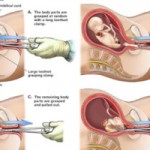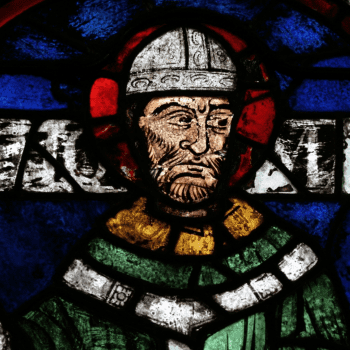“If there is mist in the pulpit there is a fog in the pew,” Charles Spurgeon once said.
Mist, according to the American Heritage Dictionary, is comprised of “a mass of fine droplets of water in the atmosphere near or in contact with the earth,” and “water vapor condensed on and clouding the appearance of a surface.”
Mist causes visual impairment, whereas fog, a type of low-lying cloud, can reduce visibility altogether. Fog has caused numerous aviation, naval, and automobile-related crashes and deaths. In many instances, fog kills.
Using this analogy, the Foghorn series offers an encouragement to believers to search the scriptures to test if what they hear being preached from the pulpit is what the Bible actually says. (Acts 17:11) If it isn’t, what is the purpose of the message? And why are congregants choosing to sit in fog?
A foghorn provides a warning to those who hear it so they can avoid danger. The effect of fog is that it blocks us from being able to see what is before us, creating potentially dangerous circumstances. If we hear a warning sound perhaps we can avoid some aspect of danger or disaster that may befall us. As a spiritual foghorn, this series of articles hopes to serve this purpose.
The articles highlight what appears to be mist being preached in too many pulpits in evangelical churches in America– with the goal of warning against erroneous teaching. Error detracts from one of the main purposes of preaching to begin with: proclaiming the gospel (the good news) of Jesus Christ.
Discerning truth from falsehood helps us to grow closer to God and to live better lives.
The Puritans believed the highest vocational calling was preaching the word of God. The pulpit must not be taken lightly because what is spoken from it has eternal consequences. They believed a preacher called to minister to the souls of men and women has the greatest responsibility on earth, and as such, is held to the highest standard. The preacher’s responsibilities, among many and above all, include clearly presenting the basic truths of the gospel, not distorting or denying them.
In the practice of law, prosecutors, defense attorneys, and judges are bound by legal and ethical guidelines to present, question, and rule on a case, respectively. Those who provide false evidence, suppress evidence, or break the laws governing their conduct can be prosecuted for malpractice. They can be disbarred and criminal charges can also be brought against them.
In the practice of medicine, doctors are required to undergo extensive education and field training before diagnosing, administering medicine, or performing surgeries. Nearly all medical schools administer the Hippocratic Oath to graduating students. Medical professionals are required to follow ethical and legal guidelines and those who break them can be prosecuted for malpractice or criminal acts of negligence.
A person who is misdiagnosed or allegedly injured by a doctor, or who feels their attorney didn’t adequately represent them, can file a complaint, choose to find another professional to help them, or sue.
While the legal and medical fields often deal with life and death issues, preaching deals with the eternal. There is life after death. Our spirits will live on, either in heaven or in hell, for eternity. Ultimately, the creator of the universe will ask everyone why he or she should be allowed into heaven—and it is the preacher’s job to help them prepare for this reality.
Unfortunately, the pulpit is being used by many to speak about everything other than the only One who saves our souls. Bad preaching, puffing mist, or “malpractice,” includes things like adding to the text, distorting truth, making false statements, and much more.
Congregants can complain, ask the him to leave or leave themselves. But the preacher can just go to another church and keep puffing mist.
Regardless if the intent is malicious, the act of preaching falsehoods diminishes the essential purpose of preaching and can spread discord and disharmony.
So why are mist-makers still in the pulpit? Because the mist, Spurgeon suggests, has helped spread fog to the pews. If weather conditions don’t change, fog gets thicker and more deadly.
What can we do? We cannot change bad preaching; we can only encourage those with the gift of preaching to improve. We can ask why they are puffing mist. We can lovingly point out and correct error.
While we cannot change the hearts of men (only God can), we cannot, and should not, support remarks being made from the pulpit that are demonstrably false or appear to reject what the Bible says. We can also challenge a congregation and its leaders who keep the mist-makers in the pulpit.
The foghorn series attempts to do this. While it does mention the city and denomination of the church in which the sermon was given, it does not name the speaker, or the church. The sermon highlighted is one of several I’ve heard from the same person, and best represents mist coming from the pulpit of this church.












